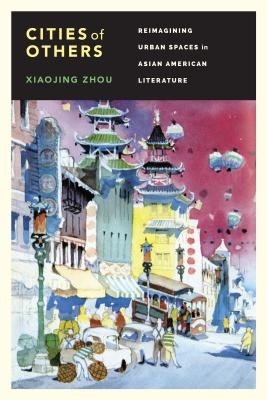
- We will send in 10–14 business days.
- Author: Xiaojing Zhou
- Publisher: University of Washington Press
- ISBN-10: 0295994037
- ISBN-13: 9780295994031
- Format: 11.8 x 25.7 x 2.2 cm, softcover
- Language: English
- SAVE -10% with code: EXTRA
Reviews
Description
Asian American literature abounds with complex depictions of American cities as spaces that reinforce racial segregation and prevent interactions across boundaries of race, culture, class, and gender. However, in Cities of Others, Xiaojing Zhou uncovers a much different narrative, providing the most comprehensive examination to date of how Asian American writers - both celebrated and overlooked - depict urban settings. Zhou goes beyond examining popular portrayals of Chinatowns by paying equal attention to life in other parts of the city. Her innovative and wide-ranging approach sheds new light on the works of Chinese, Filipino, Indian, Japanese, Korean, and Vietnamese American writers who bear witness to a variety of urban experiences and reimagine the American city as other than a segregated nation-space.
Drawing on critical theories on space from urban geography, ecocriticism, and postcolonial studies, Zhou shows how spatial organization shapes identity in the works of Sui Sin Far, Bienvenido Santos, Meena Alexander, Frank Chin, Chang-rae Lee, Karen Tei Yamashita, and others. She also shows how the everyday practices of Asian American communities challenge racial segregation, reshape urban spaces, and redefine the identity of the American city. From a reimagining of the nineteenth-century flaneur figure in an Asian American context to providing a framework that allows readers to see ethnic enclaves and American cities as mutually constitutive and transformative, Zhou gives us a provocative new way to understand some of the most important works of Asian American literature.
EXTRA 10 % discount with code: EXTRA
The promotion ends in 19d.04:23:47
The discount code is valid when purchasing from 10 €. Discounts do not stack.
- Author: Xiaojing Zhou
- Publisher: University of Washington Press
- ISBN-10: 0295994037
- ISBN-13: 9780295994031
- Format: 11.8 x 25.7 x 2.2 cm, softcover
- Language: English English
Asian American literature abounds with complex depictions of American cities as spaces that reinforce racial segregation and prevent interactions across boundaries of race, culture, class, and gender. However, in Cities of Others, Xiaojing Zhou uncovers a much different narrative, providing the most comprehensive examination to date of how Asian American writers - both celebrated and overlooked - depict urban settings. Zhou goes beyond examining popular portrayals of Chinatowns by paying equal attention to life in other parts of the city. Her innovative and wide-ranging approach sheds new light on the works of Chinese, Filipino, Indian, Japanese, Korean, and Vietnamese American writers who bear witness to a variety of urban experiences and reimagine the American city as other than a segregated nation-space.
Drawing on critical theories on space from urban geography, ecocriticism, and postcolonial studies, Zhou shows how spatial organization shapes identity in the works of Sui Sin Far, Bienvenido Santos, Meena Alexander, Frank Chin, Chang-rae Lee, Karen Tei Yamashita, and others. She also shows how the everyday practices of Asian American communities challenge racial segregation, reshape urban spaces, and redefine the identity of the American city. From a reimagining of the nineteenth-century flaneur figure in an Asian American context to providing a framework that allows readers to see ethnic enclaves and American cities as mutually constitutive and transformative, Zhou gives us a provocative new way to understand some of the most important works of Asian American literature.


Reviews